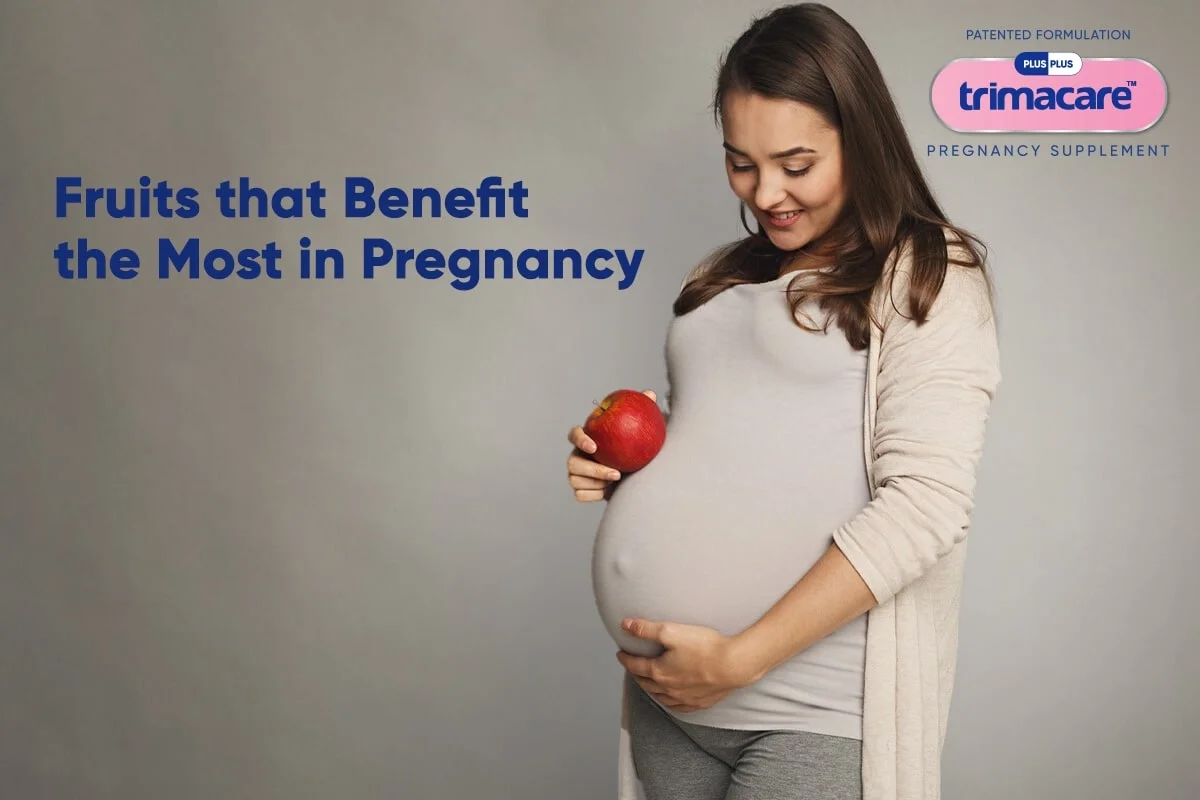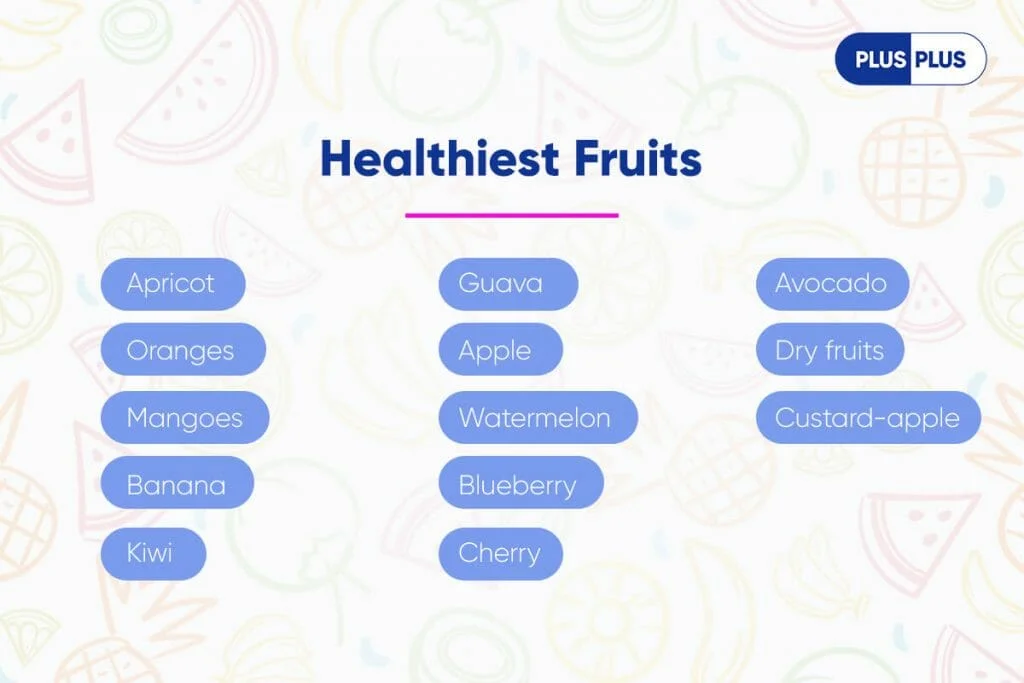Pregnancy is when every bite counts-not only for the mother’s well-being, but also for the baby’s growth. All types of fruits and vegetables, fruits for pregnancy are particularly unique. Fruits are naturally sweet, nutrient-rich and packed with health benefits. That’s why they are called nature’s candy. Adding the best fruits for pregnancy to your daily diet promotes everything from immune function to foetal development.
A balanced prenatal diet should include fruits for pregnant women, as they provide required vitamins, fibre, minerals and antioxidants. Whether you crave something sweet or want a healthier plate, knowing the appropriate fruits to eat during pregnancy can guide you in making better decisions. Let’s see what makes a fruit suitable for pregnancy and what are the most beneficial ones.
What Makes a Fruit “Healthy” When Pregnant?
Not all the fruits are equal, particularly when pregnant. Here’s what to seek when choosing the best fruits while pregnant:
- Nutrient density: Vitamins, Minerals and Fiber
Fruits rich in folate, vitamin C, potassium, iron and fibre nourished maternal and foetal well-being. These nutrients help in the baby’s organ formation, immune system support and prevent constipation.
- Low in added sugar, high in natural energy
Fruits that contain natural sugar give energy without the crash, unlike processed snacks. They are also a better option than sugary desserts, and thus they are the best fruits to eat while pregnant.
- Hydration and Digestion support
Many fruits contain high water content, which prevents dehydration and helps kidney function. Others are fibre-rich, enhancing digestion and alleviating common pregnancy problems such as constipation and bloating.
Top 10 Healthiest fruits for pregnant women
These are the best fruits for pregnant women, full of nutrients and okay to eat daily:
Bananas
Bananas are rich in potassium, which helps lower leg cramps and stabilize blood pressure. They are also easy to digest, relieving morning sickness.
Oranges
Rich in vitamin C and folate, oranges boost the immune system and enhance iron absorption. Folate is essential in preventing neural tube defects, particularly during the first trimester.
Apples
Apples provide fibre and antioxidants, helping in digestion and preventing gestational diabetes. They are also a healthy way to gain weight and can be a filling snack.
Berries
Strawberries, blueberries and raspberries are rich in antioxidants, vitamin C and fibre. They shield cells from damage, reduce inflammation and support digestion.
Avocados
While considered a fruit, avocados are filled with healthy fats, folate, vitamin E and potassium. They nourish foetal brain development and help ease pregnancy-induced leg cramps.
Mangoes
These tropical fruits are rich in Vitamin A and Vitamin C, which support the immune system and help in eye development. Just monitor portion sizes because of their inherent sugar content.
Pomegranates
Pomegranates are a great source of antioxidants, vitamin K and iron. They prevent anaemia and promote bone health. Perfect for improving iron levels naturally.
Papaya (ripe only)
Ripe papayas help in digestion and are a great source of vitamin C. Nevertheless, unripe papaya is one of the fruits to avoid during pregnancy because it can induce uterine contractions.
Watermelon
This water-dense fruit reduces swelling, dehydration and heartburn. It is perfect for hot weather and water retention.
kiwis
Rich in vitamins C, E and fibre, kiwis boost the immune system and digestion. Their special enzyme, actinidin, can improve protein digestion.
Fruits to consume in moderation and fruits to avoid
Although fruits are healthy, there are certain fruits to be avoided during pregnancy, particularly in the first trimester:
- High-sugar fruits and dried fruits
Restrict fruits such as grapes and mangoes in abundance, and avoid dry fruits during pregnancy, e.g. dates and raisins as they are calorie-dense and high in natural sugars.
Select the best dry fruits during pregnancy like almonds, walnuts, and pistachios in moderation.
- Unripe papaya and pineapple
These are the best fruits to avoid in pregnancy first trimester because unripe papaya has latex and pineapple has bromelain, which will stimulate the uterus if taken excessively.
- Always wash fruits
To prevent toxic bacteria and pesticides, always wash the fruit thoroughly -particularly imported or non-organic ones. Pregnancy demands food safety.
Best Ways to add fruits to your pregnancy diet
There are innumerable healthy and creative means by which pregnant women can enjoy fruits:
- Salad smoothies
Mix with Greek yoghurt for a protein-packed smoothie or add to salads for a crisp burst of flavour.
- Yoghurt toppings and fruit-infused water
Top plain yoghurt with chopped fruits and a sprinkle of nuts. Add slices of citrus or berries to water for a delicious way to hydrate.
- Fresh Vs Juiced: Whole is better
Whole fruits have fibre whereas juices tend to lose nutrients and cause a spike in blood sugar. Fresh fruit is the preferred choice for sustaining a level of energy supply.
Seasonal and local fruit selections
Selecting season and locally produced fruits may increase nutrient content and lower chemical intake:
- Benefits of seasonal and organic fruits
Seasonal fruits are picked at the height of ripeness and tend to be more nutritious. Organic and locally grown varieties reduce your pesticide exposure and are better for the environment.
- Nutritional benefits
For instance, seasonal berries in summer or citrus fruits in winter provide immunity boosts when you need them most. Adopting regional availability also helps your local farmers.
A strong foundation starts with complete prenatal care: Choose Trimacare
Trimacare pregnancy multivitamin is a three-stage prenatal nutrition regime specifically for Indian pregnancies, giving more than 20+ key components in one pill, delivering trimester-specific attention to Indian mothers and their unborn children.
Trimacare prenatal vitamin contains a Unique Time Release form, which allows for slow iron absorption and avoids gastrointestinal side effects. Trimacare 3 pregnancy vitamin tablets have bowel regulators which help in constipation control.
Trimacare pregnancy supplement is formulated by renowned doctors, nutritionists and pharmacologists adhering to the guidelines set by WHO and ICMR multi-micronutrient.
Trimacare prenatal vitamins formulated by well-known doctors, nutritionists, and pharmacologists are formulated on the ICMR and WHO Multi-Micronutrient Model. Trimacare prenatal tablet is 100% vegetarian, ideal for women who are sensitive to fish oil and fishy odours.
Conclusion
Including the best fruits while pregnant is one of the easiest and most effective methods of maintaining your and your baby’s health. From bananas for leg cramps to avocados for brain growth, each fruit has a special advantage to offer.
Eat a variety of the best fruits during pregnancy, while knowing the fruits to avoid in pregnancy. Combined with a healthy diet, fruits are superfoods for the pregnancy journey.
FAQs
Q1. Can fruit relieve swelling during pregnancy?
Yes. Watermelon and cucumber (actually a fruit) are hydrating fruits that aid in decreasing swelling and water retention.
Q2. Must I avoid high glycemic index (GI) fruit during pregnancy?
It is wise to restrict watermelon or ripe bananas, high-GI fruits, if you have gestational diabetes. Go for low-GI fruits such as apples, pears, and berries.
Q3. Is fruit helpful in alleviating morning sickness?
Bananas and citrus fruits may alleviate nausea and replace lost nutrients, particular in the first trimester.
Q4. How can fruits be healthily included in a diet during pregnancy?
Include fruits in smoothies, salads, yoghurt bowls or consume them fresh. Whole fruits are more nutritious than juice because they contain fibre.
Q5. How much fruits should I consume daily during pregnancy?
Target 2-4 servings of fruits per day as part of well-balanced prenatal diet, based on your calorie requirements.
A Certified Nutritionist with a rich healthcare background in health journalism, the author has immense experience in curating reader-friendly, engaging, and informative healthcare blogs to empower readers to make informed pregnancy-related decisions.













